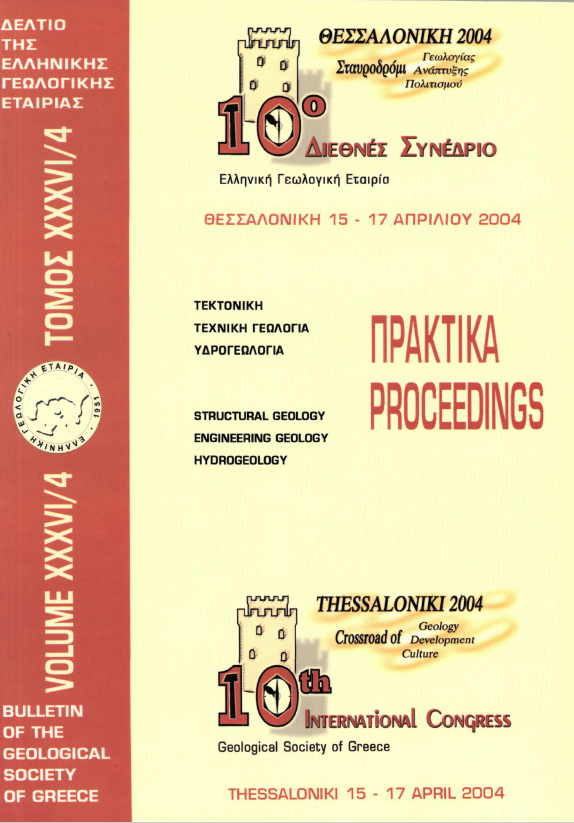STUDY OF EVOLUTION OF THE SEAWATER INTRUSION IN COASTAL AQUIFERS. CASE STUDY: THE COASTAL AQUIFER SYSTEM OF NW ACHAIA
Résumé
Seawater intrusion problems are recorded in coastal aquifers, which constitute the main sources of drinking water and agricultural irrigation in many countries. The aim of this work is to describe the evolution of the salinity distribution by seawater intrusion, based on results from chemical analyses, of 29 groundwater samples in the NWAchaia area (Peloponnesus, Greece). The study of these data indicates that aquifer waters in large part of area reflect salinization related to seawater intrusion. The occurrence of Ca-CI hydrochemical types of groundwater indicates active seawater intrusion. Cation exchange is the most noticeable hydrogeochemical process in the movement of the saline front in the coastal aquifer. Geographical distribution of Careact index was mapped. The areas with advance or decline of the seawater intrusion front are defined from this map.
Article Details
- Comment citer
-
Βουδούρης K., Νίκας K., & Αντωνάκος A. (2004). STUDY OF EVOLUTION OF THE SEAWATER INTRUSION IN COASTAL AQUIFERS. CASE STUDY: THE COASTAL AQUIFER SYSTEM OF NW ACHAIA. Bulletin of the Geological Society of Greece, 36(4), 1952–1961. https://doi.org/10.12681/bgsg.16690
- Rubrique
- Hydrology and Hydrogeology

Ce travail est disponible sous licence Creative Commons Attribution - Pas d’Utilisation Commerciale 4.0 International.
Authors who publish with this journal agree to the following terms:
Authors retain copyright and grant the journal right of first publication with the work simultaneously licensed under a Creative Commons Attribution Non-Commercial License that allows others to share the work with an acknowledgement of the work's authorship and initial publication in this journal.
Authors are able to enter into separate, additional contractual arrangements for the non-exclusive distribution of the journal's published version of the work (e.g. post it to an institutional repository or publish it in a book), with an acknowledgement of its initial publication in this journal. Authors are permitted and encouraged to post their work online (preferably in institutional repositories or on their website) prior to and during the submission process, as it can lead to productive exchanges, as well as earlier and greater citation of published work.



